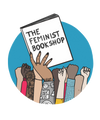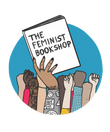A bilingual reader experience

By Salomée Lou, March 2023
Language fascinates me and always has. The absence of it, too. I grew up in a family where silences weighed heavier than words, and maybe that’s why I learnt another language with such determination. I wanted to be able to communicate my emotions not in one but two languages, to compensate for the lack of it in my childhood. I have always been in awe with the unconscious choice we make when we use certain words to express ourselves, especially when it comes to difficult or emotional conversations.
The first day I arrived in the UK, two members of my family helped me move. We were in a taxi together, I spoke to the taxi driver in English, and one of them said “you sound softer in English”
It is interesting how my way of understanding the world and communicating with others changes depending on the language I speak in. It is as if my personality fluctuates depending on the language I express myself in.
Starting to read in English took me ages but once I started I really enjoyed it. It was difficult to always pause and look for words I didn't know in the dictionary (yes, I’m that old). The positive side of it was that reading felt more like an embodied experience, where I felt grounded, present to myself, and reading was an active pastime. Although I also felt frustrated, as It kept reminding me of my poor level of English at the time, and made me feel like I would never reach the point where I could just read an entire book without interruption. Slowly, I didn’t have to pick up the dictionary as often, and could put the sentences back into context thanks to other words I already knew. Naturally, the development of technologies massively helped too, however, as my skills improved over the years, I didn’t need to look up words as much and my phone became a huge inconvenience. I now have to put it in a drawer in a different room so I can immerse myself completely into a different world. But that’s another topic for another article!
In my experience, swapping between two languages is a whole body and mind experience. It is not only my brain that switches from one language to another, it is also my whole self: the knowledge I have on one’s culture, the popular culture references, my own relationship to all of it. Translation is such a tricky thing. There are words that cannot be translated or at least, the essence of the feeling cannot be transcribed nor understood unless you lived in both languages, and I would even say there are some things I will never fully understand because I didn’t grow up in the UK.
Disoriental written by Négar Djavadi and translated by Tina Kover
For Disoriental, I read it first in English then in French - one after the other. I enjoyed the English translation, but perhaps only because I read the edition first. For some reason, I feel like I enjoyed the translation, it might be because I read it first in English.
When I read it in French, its original language, I did realise a few cultural examples that, although beautifully translated, were not as nearly impactful if you haven’t grown up or lived in France for a bit.
There are moments throughout the book that address the current state of racism in France. The passages from the point of view of an immigrant particularly hit me because I grew up in South Eastern France, where there is a big community of people from North African countries and where far-right political parties and Le Pen are worryingly popular. To see this rendered in a book translated in English and therefore, touching more people in the world, made me realise the importance of speaking about these things and how we need to stop depicting France as this revolutionary country, “le pays des Lumières” (The Enlightenment Country) because it, unfortunately to this day, remains extremely misogynistic and racist.
In Defence Of Witches written by Mona Chollet and translated by Sophie R. Lewis
For Mona Chollet’s book, I read it the other way around (first in French, then the English translation) and five years apart from one another, so as well as the language, there’s also the age gap to take into consideration.
I read it for the first time when I was about to turn 25, in 2018, in a world freshly revolutionised by the #MeToo Movement. I remember highlighting every single page, mind-blown by Mona Chollet’s research and work of deconstruction on the witch archetypes.
I read it again last month, in a world slowly recovering from a pandemic - and also feeling like a totally different person from when I first read it. Discussing it with people at the book club made me realise that, five years later, with the growing trends of self-care books and the huge emergence of books written on the feminist figure of the witch - that what Mona Chollet expressed in her book are not that revolutionary, at least not in the English-speaking world that is so progressive compared to where I grew up.
I also realised the cultural gap by discussing this pick with bookclub subscribers last month: a lot of readers told me they had to google the references Mona Chollet made, and even though they got her reasoning, it didn’t resonate as much because they had to constantly look for names up and didn’t comprehend the full context.
We also discussed the use of language itself. Some members of the bookclub felt that the tone used felt aggressive, it felt like the author was trying too hard to convince her readers, who probably most of them were already on board with what she was conveying. Once again, I am going back to the cultural difference here and how in France, we are not quite there yet, and that might be why Mona Chollet’s wording feels like it is harsher than intended.
The subtitle itself differs from French. In English, it is Why women are still on trial whereas in French, it is La puissance invaincue des femmes - The undefeated power of women. The focus changed: whilst the French language is more of a positive assertion on female strength and impact in the world, the English language focuses (at least that’s my interpretation) on the way to go and the amount of work we still have to do to achieve equality and therefore reminds us all that the struggle is very much still here. And from this, we can draw a parallel on the different audiences depending on the countries and cultures, even though in this case, it seems a bit contradictory: We French people tend to always rant, complain, and never be happy about a situation, whereas my experience with English people is a more laid back attitude towards a lot of things. When it comes to feminism, it is always better to stay angry and use anger as a creative and activist outlet to make things move forward.
I will always try as much as possible to read books in their original languages because I believe it does render in the best way what an author is wanting to transmit. I have to admit (bad bookseller confession) but some editions, depending on the country, are more beautiful than others, and it can be tricky when I want an aesthetically pleasing object on my shelves.
A translation, according to me, is a rewriting of a text. I see translation as a new book altogether. The story might be the same, and translators are no doubt professionals and much more knowledgeable on linguistics than I am, but I think there is also a tiny bit of room for your own interpretation, and the translator is foremost a person with a particular education and background and it can sometimes appear in some wordings or choice of words.
We all have different associations with certain concepts and words depending on a lot of different things and it is always a good thing to keep in mind when you read a translation.
And as R.F Kuang brilliantly said in her phenomenal Babel; “an act of translation is always an act of betrayal.”










Leave a comment